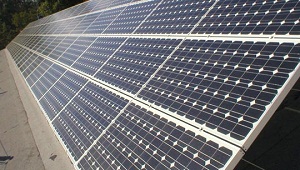Solar leasing eclipses purchases in CA
 Californians have decided that the best way to go solar is to have someone else pay for it.
Californians have decided that the best way to go solar is to have someone else pay for it.
Growth in third-party owned solar installations in California far outpaced growth in the number of home systems purchased outright, according to a report from SunRun and PV Solar Report.
The solar industry had an overall successful third quarter of 2011 in California with 17 percent more people purchasing rooftop solar panels. But the really impressive growth was the 67 percent more households that leased panels.
Solar leasing is the fastest growth sector of the residential solar industry throughout most of the nation.
SunRun started the trend in 2007 when it launched its business.
“The business model is very difficult to do,” said SunRun spokeswoman Susan Wise. “And it’s especially difficult to do well. But SunRun was able to demonstrate that we can do it well.”
The company grew 200 percent in 2010 and has developed a strong reputation in California and nationally. Earlier this year, SunRun partnered with Home Depot to offer its solar leasing option in the stores.
“The public sees that this works,” Wise said. “Momentum builds as we’re able to show that this is an enduring investment.”
The partnership with Home Depot is part of the company’s ramped up public outreach effort.
Education is an important part of what SunRun is doing, Wise said. The company started making a strong effort to get out and explain to people that they can go solar without investing $35,000. In fact, through third-party leases, they can do it with just about no up-front money.
SunRun owns, maintains and insures the solar panels. The company collects all the tax credits and utility rebates for the system, which offset’s the customer’s electric bill. SunRun collects any extra credits produced from the array along with a fixed-rate lease from the homeowner.
In SunRun’s outreach efforts, the company explains how the model works, Wise said. The idea is that the homeowner pays a fixed flat rate for power with no worry about rising electricity costs.
“As part of that education element,” Wise said, “we see the market open to medium income people and families, to a whole new demographic that didn’t used to be able to go solar.”
Image courtesy of SunRun.



